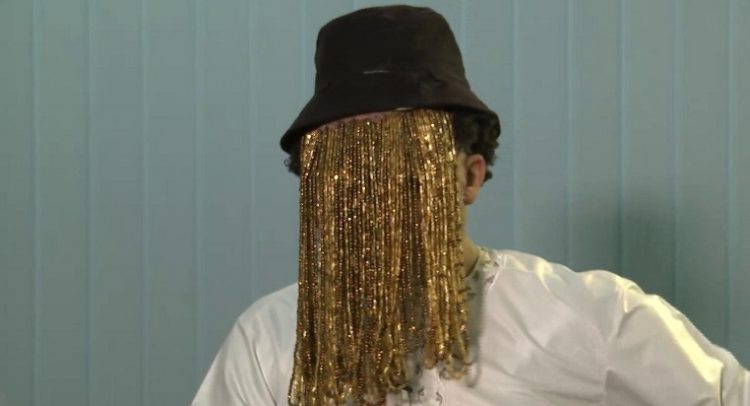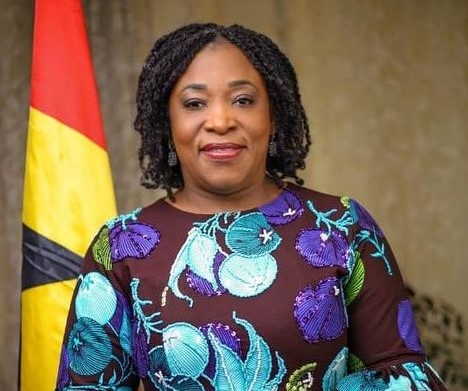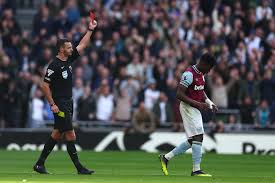
The Senate earlier backed his nomination by 50 votes to 48.
Mr Kavanaugh had been embroiled in a bitter battle to stave off claims of sexual assault, which he denies.
But after an 11th-hour investigation by the FBI into the allegations, enough wavering senators decided to support the nomination.
His confirmation hands Mr Trump a political victory ahead of key mid-term elections in November.
Ahead of the vote, hundreds of people protested against Mr Kavanaugh's nomination at the US Capitol in Washington.
During the vote, other protesters shouted "shame" from the public gallery and Vice-President Mike Pence had to call for order to be restored.
Mr Kavanaugh's appointment is for life and he will strengthen conservative control of the nine-judge court, which has the final say on US law.
The 53 year old was sworn in on Saturday evening in a private ceremony at the Supreme Court. Chief Justice John Roberts administered the constitutional oath and retired justice Anthony Kennedy - whom Mr Kavanaugh is replacing - administered the judicial oath.
Protesters had gathered outside the court and at one point some ran up the steps and banged on its ornate doors. Other demonstrators climbed on the nearby statue of justice.
What has Mr Trump said?
He sent out a tweet of congratulations:
I applaud and congratulate the U.S. Senate for confirming our GREAT NOMINEE, Judge Brett Kavanaugh, to the United States Supreme Court. Later today, I will sign his Commission of Appointment, and he will be officially sworn in. Very exciting!
— Donald J. Trump (@realDonaldTrump) October 6, 2018
Later he spoke to reporters aboard Air Force One, saying Mr Kavanaugh had withstood a "horrible attack by the Democrats" and that women were "outraged" at what had happened to the nominee.
Mr Trump also said he was "100% certain" that the woman who had accused Mr Kavanaugh of sexual assault, Christine Blasey Ford, had named the wrong person.
So what were the numbers in the Senate?
The upper house is split 51-49 in favour of the Republicans and the vote was largely along party lines. In the end, there was indeed a two-vote margin, the closest nomination vote since 1881.
The only party dissenters were Republican Senator Lisa Murkowski, who had intended to vote no, and Democrat Joe Manchin, who voted yes.
That should have meant a 51-49 tally, but the absence of Republican Steve Daines, a yes voter who was at his daughter's wedding, altered the final figures.
Ms Murkowski opted instead to simply mark herself as "present", leaving the final vote 50-48.
What was said in the Senate?
In their final summations, the two Senate party leaders reflected how bitter the divide had become.
Minority Democrat leader Chuck Schumer said Mr Kavanaugh did not belong on the bench as he had "obscured his views to the American people", "repeatedly misled the Senate" and delivered one of the "bitterest and most partisan testimonies ever presented by a nominee".
He also said Mr Trump had "stooped to new depths" in mocking the testimony of Christine Blasey Ford.
Ms Murkowski opted instead to simply mark herself as "present", leaving the final vote 50-48.
What was said in the Senate?
In their final summations, the two Senate party leaders reflected how bitter the divide had become.
Minority Democrat leader Chuck Schumer said Mr Kavanaugh did not belong on the bench as he had "obscured his views to the American people", "repeatedly misled the Senate" and delivered one of the "bitterest and most partisan testimonies ever presented by a nominee".
He also said Mr Trump had "stooped to new depths" in mocking the testimony of Christine Blasey Ford.
Read Full Story














Facebook
Twitter
Pinterest
Instagram
Google+
YouTube
LinkedIn
RSS